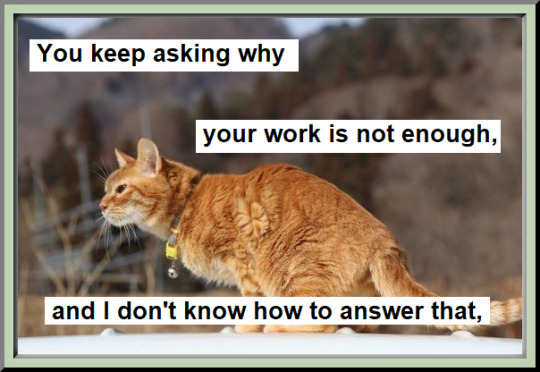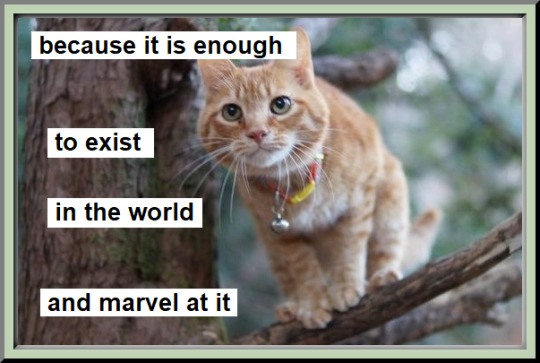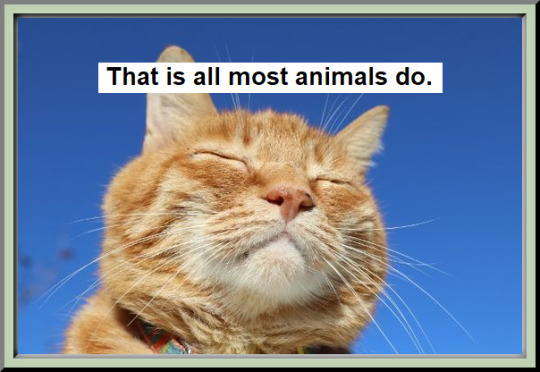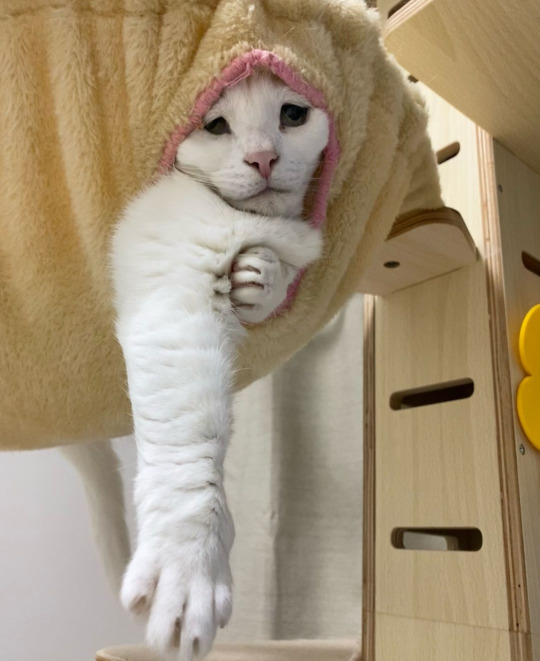Text
ANHEDONIA REMEDIES!
GET YOUR ANHEDONIA REMEDIES HERE!
if you are lost in the rut, i am begging you to read this essay by Sasha Chapin suggesting what, essentially, my take, are potential jump-starts back into living life in real time. like actually experiencing experiences
do it now! don’t lose months, years, or decades! there is a life beyond doomscrolling, and it’s finite (sorry. sorry. i know okay)
1K notes
·
View notes
Text
"Of course I'll hurt you. Of course you'll hurt me. Of course we will hurt each other. But this is the very condition of existence. To become spring, means accepting the risk of winter. To become presence, means accepting the risk of absence..."
- Antoine de Saint Exupéry, The Little Prince (via books-n-quotes)
5K notes
·
View notes
Text
7 notes
·
View notes
Text
I feel like Max Weber's the Protestant Ethic and the Spirit of Capitalism has a lot to say to Severance, specifically how religion and work intersect, but I'm too tired to write that essay right now.
5 notes
·
View notes
Text
people who love severance and want more of This Shit (esp once the season finale comes up) you should read some of george saunders’ stories. when watching severance i kept going “omg this is sooo saundersian” and bothering my partner so here’s my pitch: I recommend the entire collections liberation day and tenth of december but two stories i’ve accessed thru wayback machine to avoid paywall that i think would tickle that urge are:
ghoul — what if you worked in a hell-themed theme park but get this you can’t leave and get this too nobody knows how
escape from spiderhead — a convict agrees to be put through scientific tests and administered drugs in lieu of other forms of incarceration (they made a movie out of this, it was not good.)
saunders is great with speculative short fiction that falls in line w what the writers of severance are doing so i neeeeed ppl to hop on his stories!!
73 notes
·
View notes
Text
I don’t know who needs to hear this, but if you let something slide because you were too shocked to react in the moment, you can bring it up the next time you talk to that person, you can text them, you can let them know it won’t slide again in the future. you don’t have to just accept that behavior indefinitely because you couldn’t gather your thoughts to say it made you uncomfortable when it first happened. you’re not making anything awkward, you are giving someone an opportunity to show care for you, and telling them you trust them enough to change their behavior. there is literally nothing wrong or bad with voicing discomfort even if the moment has already passed.
18K notes
·
View notes
Text

Joel Slotte (1987) Finnish
A possibility of an idyll (2019)
oil on canvas
153 notes
·
View notes
Text

"The sky is filled with hope tonight, each star a promise of a brighter life."
- Christy Ann Martine
Painting by William Hawkins
5K notes
·
View notes
Text









Take it as a chance and use your voice.
Art by Sina (@sin.xline on Instagram)
Support Sina on Ko-Fi
This artist has a LOT of good small comics like this on Instagram, worth checking out if you have the app! Maybe drop Sina a tip if you enjoy the work :)
897 notes
·
View notes
Photo




- A Psalm for the Wild-Built, Becky Chambers // kagonekoshiro
139K notes
·
View notes
Text
Choosing Not To Transition Is Still A Choice

























Choosing Not To Transition Is Still A Choice
@iamcrywolf | tumblr post | Somebody Somewhere | @/bullydyke-rider | I Saw the TV Glow’s Ending Is Full of Hope, If You Want It to Be, Emily St. James | Growing Sideways, Noah Khan | unknown | @ojibwa | Diary, Chuck Palahniuk | Margaux I Paul | A Little Larger Than The Entire Universe: Selected Poems, Fernando Pessoa | Brokeback Mountain | Stephanie | I Saw the TV Glow | An Apartment on Uranus, Paul B. Preciado | Justice Smith Unpacks the Mysteries of I Saw the TV Glow--Including That Ending | Benay Lappe | @/maplepecanpastry | @steveyockey | Justice Smith Unpacks the Mysteries of I Saw the TV Glow--Including That Ending | I Saw the TV Glow | Iain Thomas | Falsettos | unknown | I Saw the TV Glow
451 notes
·
View notes
Text
this is going to be a generalized take, so please forgive me, but women are an underrated enforcer of femininity.
I’ve noticed this with hairdressers. multiple times I’ve gone to lady hairdressers and said “cut it all off,” and they’ve gone “hmm alright,” and basically just trimmed the split ends. meanwhile I can go to a dude and say “hey, can you make my hair slightly shorter?” and he’ll go “on it boss,” and shave me bald.
twice now, I’ve also had lady tattoo artists add pink to femme up a tattoo, despite that not being on the initial design.
god, also thinking about this brought back a memory. my mom once threw a fit because my shoes were “too masculine” (they were black women’s flats), saying that I’d upset my dad and ruin the formal event we were going to. I wore the shoes, my dad didn’t give a shit.
I dunno. it just feels like the misogyny is coming from inside the house sometimes.
17K notes
·
View notes
Text
a night out at the club can have a three act structure
13K notes
·
View notes
Text
The “return to childhood” consumerist trend in the west is part of the Settler Move to Innocence
6K notes
·
View notes
Text
I generally feel like writing a sequel/response/amendment/reimagining/whatever to the ones who walk away from omelas is a cheap and unremarkable trick that takes all of its power from the strength of the original, and it's something that should stay in a writer's workbook. it's an inside the head exercise and I don't really care what 1000000 different authors think of the civilisational trolley problem. some of them are better than others but I've never read one and gone wow that gave me something new to think about. it's all there already, the rest is either abstracted debate or longhand arithmetic proving the formula. I'm watching you play your scales. it's fine.
2K notes
·
View notes

